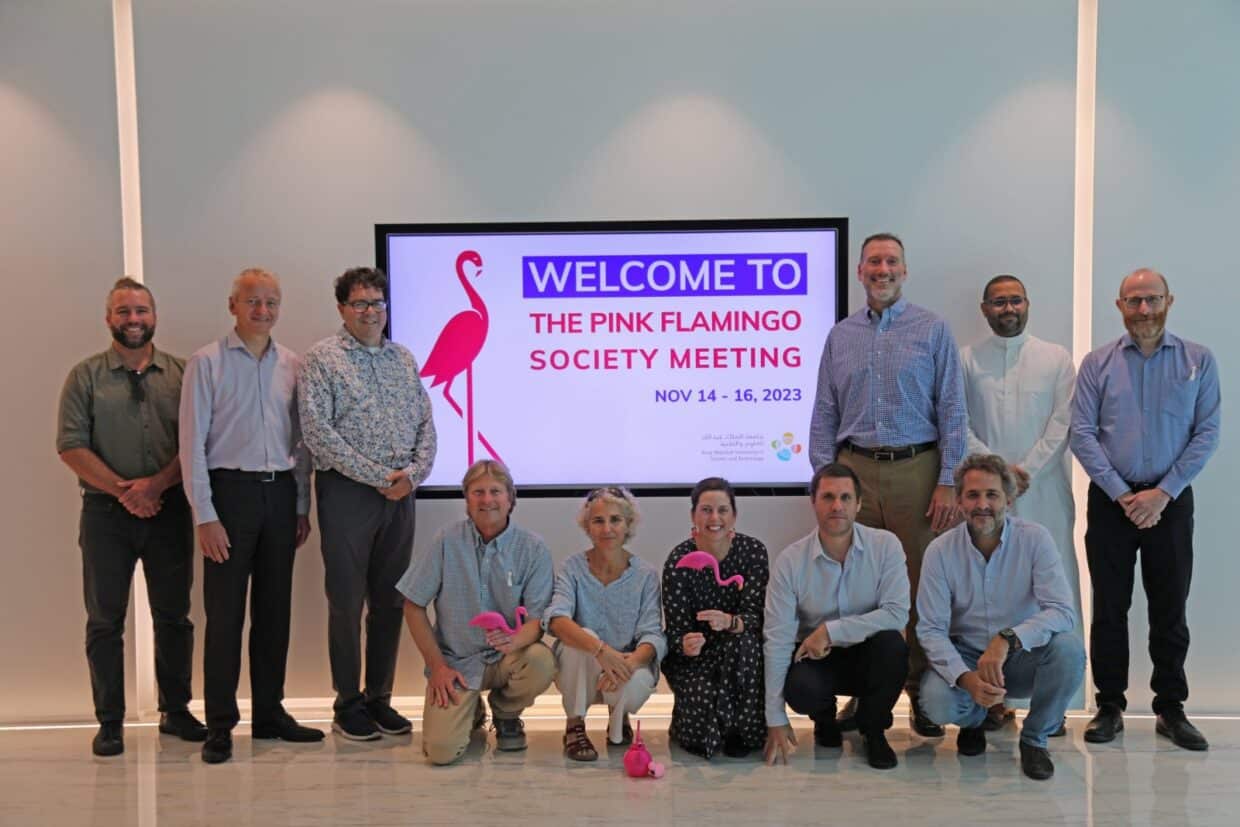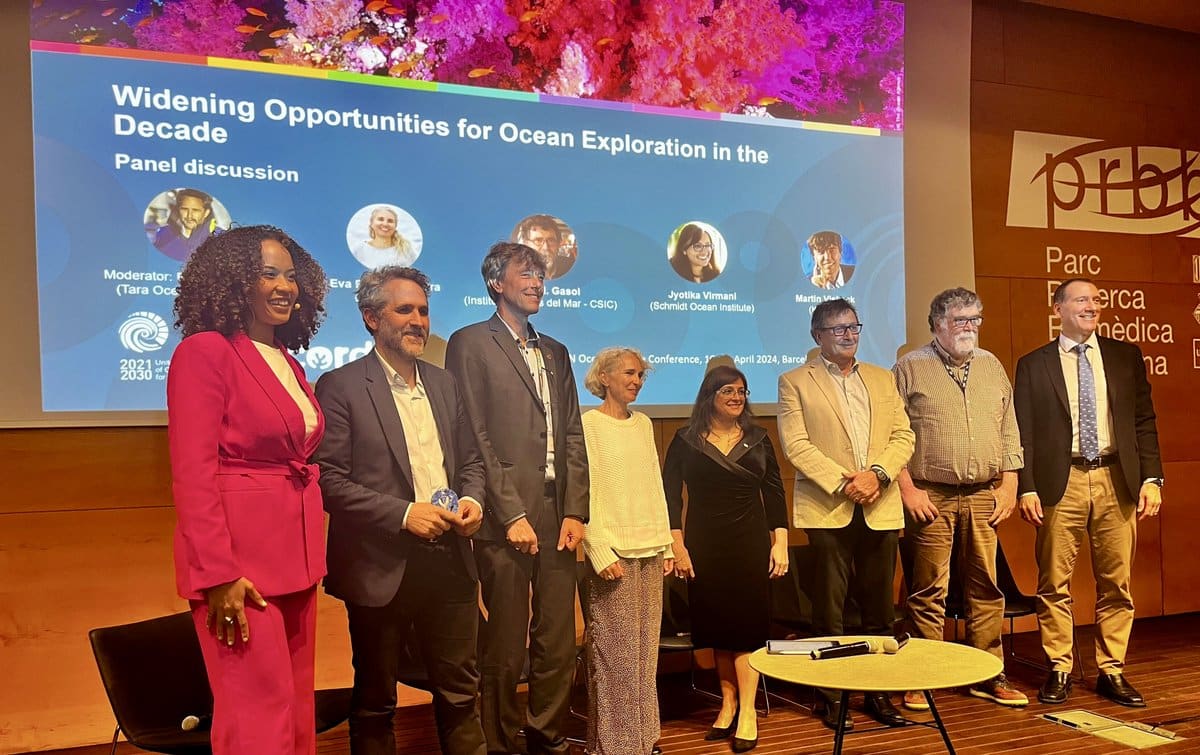The Pink Flamingo Society: An international fleet of oceanographic research vessels funded philanthropically
The United Nations has declared a Decade of Ocean Science for Sustainable Development (2021-2030) to protect the Ocean’s health. Ambitious goals have been set in order to advance marine science. This implies to support scientific expeditions through investments, technological development, public engagement, etc. As a result, the Pink Flamingo Society, a philanthropic fleet, has been created. By joining forces, this group of foundations makes its vessels and cutting-edge technologies available for ocean exploration and international research. The Tara Ocean Foundation has been a member since 2019.

The cost of ocean exploration
The funding of ocean exploration is low compared to that of space exploration. This research field therefore struggles to organize and develop. At the same time, the technologies required to explore the depths of the Ocean are expensive (submersible remotely operated vehicles (ROVs), oceanographic vessels, etc.). In addition, research takes time: several years are usually necessary to process the vast number of samples, analyze the data and publish the scientific results. All of these constraints make ocean exploration complex.
Faced with these many challenges, several foundations have decided to combine their financial, technical and human resources.
Unity is strength!
The Pink Flamingo Society (PFS) is the name given to a group of private foundations that make available their scientific vessels to support public oceanographic research, as well as their collected data, freely accessible to the entire scientific community.
What is the origin of this name?
Several years ago, the Schmidt Ocean Institute discovered a statuette of a pink flamingo — totem of the Monterey Bay Aquarium Research Institute — on a sampling site more than 1,500 meters deep! Until then, they had thought this marine area still unknown. As a result, the Schmidt Ocean Institute decided to gather a first group of stakeholders around this project to avoid doubling scientific expeditions in the same area. The Tara Ocean Foundation was among the first 5 foundations to be invited. This collaboration has begun in 2019 and Romain Troublé, executive director of the Tara Ocean Foundation, currently co-chairs the Pink Flamingo Society with Jyotika Virmani, executive director of the Schmidt Ocean Institute (until 2026).
Conveying a common voice for the Ocean
The main objective of the PFS is to unite stakeholders dedicated to ocean research so that they can help each other on various topics such as sharing information on:
- the sites studied,
- navigation routes,
- port logistics,
- applications for research permits,
- data management, etc.
In addition, they convey a common voice on advocacy issues related to the Ocean.
Member organizations are from all around the world. Among them are: The Schmidt Ocean Institute, OceanX, Monaco Explorations, Monterey Bay Aquarium Research Institute (MBARI), Waitt Institute, King Abdullah University of Science and Technology (KAUST), REV Ocean, Ocean Exploration Trust, Minderoo Foundation, Inkfish and the International SeaKeepers Society.
A multidisciplinary approach dedicated to the Ocean
With the purpose of better understanding the Ocean, these various foundations work on complementary oceanographic research themes: Biodiversity, pollution, climate, deep sea, etc.
By joining forces, they initially wanted to help each other on operational issues, then gradually started leveraging with government institutions (for example, during joint events at international conferences, as recently during a side event at the 2024 Ocean Decade). In the future, these international scientific foundations intend to share scientific protocols aboard the PFS’s various vessels in order to optimize data collections and obtain interoperable data. [usable by the entire scientific community, editor’s note]

Tara, a recognized oceanographic schooner
It was in this context that the Tara Ocean Foundation has wished to join this initiative. Tara is a small oceanographic vessel, but the high-quality scientific research carried out on board has been highly praised for more than 20 years. The numerous works on climate, pollution and marine biodiversity have helped build on her ever-growing reputation, notably through publications acknowledged throughout the international scientific community. This is an example of success conducted with few means and aboard a small ship.
Even though the schooner Tara does not have the same logistical, technological and human resources as other ultra-sophisticated vessels (advanced technology required to explore the deep sea, ROVs or manned submarines, etc.), her scientific impact remains a reference.
Over the years within the Pink Flamingo Society group, the Tara Ocean Foundation has:
- demonstrated that it is possible to carry out science aboard a “small” sailboat,
- promoted the work of the Foundation and France abroad,
- made other ships come into our national waters in support of French marine research. By proposing the implementation of common protocols, we aim to advance even further ocean research worldwide since all data will then be comparable.
Conducting international oceanographic research
The PFS focuses now on exploring biodiversity in the deep sea, in the vicinity of hydrothermal vents, along the water column and on the surface, and more broadly, studying the impacts of pollution and climate change. Each institute proceeds in its own way.
The Monterey Bay Aquarium Research Institute (MBARI), a major American player, recognized worldwide for its oceanographic research, organizes scientific expeditions aboard its own oceanographic vessel.
Other shipowners (the Tara Ocean Foundation, Schmidt Ocean Institute, OceanX, Inkfish) make their ship available to ocean scientists grouped in a consortium during joint expeditions (for instance, the Tara Ocean Foundation) or one-off missions (the Schmidt Ocean Institute). Finally, other stakeholders are not shipowners. Some are research institutions (KAUST, etc.) and others do not carry out research expeditions at sea. Nevertheless, their role is to support States without resources in their oceanographic actions: Define their exclusive economic zone (EEZ), propose protection action plans or sustainable Marine Spatial Planning strategies (Waitt Institute).